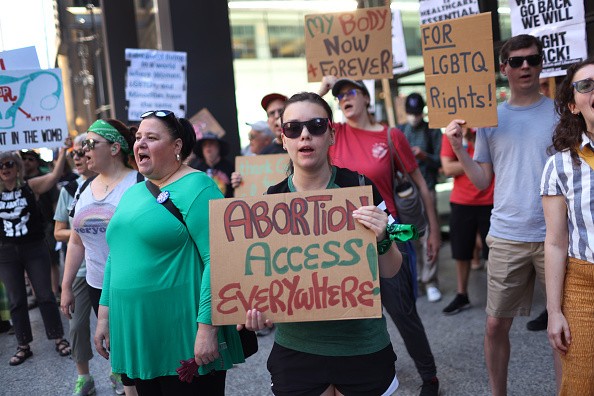On Tuesday, a federal appeals court authorized Texas to ban emergency abortions even though the US Department of Health and Human Services says a federal statute takes priority over state laws prohibiting the procedure.
The federal guidance requires emergency room doctors to perform abortions if necessary to stabilize emergency room patients.
Court Allows Texas to Ban Emergency Abortions

The 5th US Circuit Court of Appeals endorsed a lower court's decision that supported Texas Attorney General Ken Paxton. Judge Leslie Southwick, a George W. Bush appointee, and Trump appointees Kurt Engelhardt and Cory Wilson heard the appeal.
"The Texas plaintiffs argument that medical treatment is historically subject to police power of the States, not to be superseded unless that was the clear and manifest purpose of Congress, is convincing," Engelhardt wrote.
On Tuesday evening, spokespeople for the Justice Department and the Texas attorney general did not promptly respond to requests for comment.
In July 2022, the Biden administration issued guidance declaring that the Emergency Medical Treatment and Active Labor Act (Emtala), a federal statute that governs emergency rooms, permits abortion when necessary to stabilize a patient with a medical emergency, even in states where it is illegal.
The US Supreme Court's historic Roe v. Wade decision, which had secured a national right to abortion since 1973, was reversed shortly after the guidelines were released.
Texas and the organizations filed a lawsuit against the state's right to prohibit abortion. A judge in a lower court agreed in August 2022, ruling that the Texas abortion ban "fills that void" by allowing limited exceptions to save the mother's life or, in certain situations, to prevent serious bodily harm.
Engelhardt agreed that Emtala should also include a requirement to deliver an unborn child, and it was up to doctors to balance the medical needs of the mother and fetus while complying with any state abortion laws. He wrote that the law does not provide an unqualified right for the pregnant mother to abort her child.
The ruling affirmed a lower court's order that prevented the government from implementing the guidelines against members of two anti-abortion physician societies nationwide as well as from enforcing them in Texas.
Furthermore, the ruling by the federal court was made one month after the highest state court in Texas denied the request of a lady seeking an emergency abortion due to her non-viable pregnancy. The court was currently considering a separate lawsuit by 22 women about the scope of the emergency medical exception to Texas's abortion ban.
A federal judge reached the opposite conclusion in a similar case in Idaho last year, blocking that state's abortion ban after finding it conflicted with Emtala. The ninth US circuit court of appeals is expected to hear the state's appeal of that ruling later this month.
Kate Cox's Abortion Case
Following her discovery that her unborn child has multiple health problems, including a spinal abnormality and the deadly chromosomal condition trisomy 18, Kate Cox, a 31-year-old mother of two small children, filed a lawsuit in December to get an abortion.
According to court filings, the doctors informed Cox and her husband that there was virtually no chance that their baby would survive to birth. Furthermore, the doctor explained that continuing her pregnancy would put Cox's life at risk and would probably jeopardize her future fertility.
However, Cox was unable to obtain an abortion in Texas due to the state's strict laws prohibiting the procedure. She fled her home state to obtain an abortion after Texas's top court ruled that she could not terminate her non-viable pregnancy.








